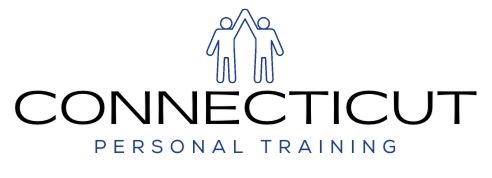The United States is becoming more popular with nutrition coaching. Due to increasing numbers of individuals accessing services to better their diets, reduce weight, control chronic diseases or just live a healthy life in general, the position of a nutrition coach is broadly growing.
However, among the questions that surround the legal scope of practice, billing, and medical coding increase with the development of the field, such as the ICD-10 system.
Therefore, is it possible to employ ICD-10 codes using a nutrition coach? The answer is not yes or no. It is based on the context; credentials of the coach and the manner of how the coach is going to utilize the codes. Let’s break this down.
What is ICD-10?
ICD-10 is an abbreviation that refers to the International Classification of Diseases, 10th Revision. It is a system that is developed on the guidelines of the World Health Organization and adapted in the U.S. by the Centers of Medicare and Medicaid Services and the National Center of Health Statistics.
Purpose of ICD-10
ICD-10 codes are used to:
- Categorise illnesses and disorders
- Track public health trends
- Support insurance billing
- Document medical diagnoses.
ICD-10 has more than 70,000 codes that include chronic diseases such as diabetes and nutritional deficiencies and eating behavioral problems.
Who Is Authorized to Use ICD-10 Codes?
The common users of the ICD-10 codes are:
- Certified medical professionals
- Medical billers and coders
- Hospitals and clinics
- Insurance companies
- Medical diagnoses, justifications of treatments and insurance claims are documented by these professionals using ICD-10 codes.
What Is a Nutrition Coach?
A nutrition coach is an expert that will assist the clients in becoming better eaters and maintaining their health.
They often:
- Give individual nutrition recommendations.
- Help with goal setting.
- Provide responsibility and encouragement.
- Teach the clients healthy eating habits.
Most nutrition coaches are not licensed healthcare professionals, such as Registered Dietitians (RDs) though. They can only practice to the extent of general wellness guidance, and not medical nutrition therapy (MNT) and medical diagnosis.
Can a Nutrition Coach Use ICD-10 Codes?
Technically, yes but with Limits.
ICD-10 codes are readable or known by a nutrition coach, particularly in situations where the collaborative service provider is licensed.
Nonetheless, there exist significant constraints:
- They are not in a position to diagnose a medical condition with an ICD-10 code.
- They are not at liberty to bill insurance directly using ICD-10 codes unless they are licensed and credentialed to bill insurance.
- This is because they can apply ICD-10 codes as an informational tool, like when a physician sends a client concern, or when a healthcare team is preparing a client record.

When Might a Nutrition Coach Encounter ICD-10?
- One of the clients was referred by a doctor who has one of the ICD-10 codes.
- The coach belongs to a medical team and should be aware of the state of the client.
- The coach is recording concerns of clients in order to have a joint wellness plan.
Legal and Ethical Considerations
Scope of Practice
The scope of practice laws differs in the U.S., depending on the state.
Nutrition coaches should:
- Do not engage in medical diagnoses.
- Do not use disease specific conditions.
- Refer clients to a licensed practitioner (such as an RD or MD) where needed.
The abuse of the ICD-10 codes may be perceived as a matter of practicing medicine without a license that may result in issues in the court.
Staying in Compliance
To remain in the legal and ethical realms:
- ICD-10 codes must be used in an educational or supportive capacity, but not in a diagnostic or billing capacity.
- When working with the medically challenged clients, work in partnership with licensed professionals.
- Employ disclaimers in your practice so as to make it clear that you are not giving medical diagnoses.
How Nutrition Coaches Can Work Alongside ICD-10
Although coaches cannot use ICD-10 codes to make a bill or diagnosis, they can:
- Provide continuation of a dietetic or physician diagnosis.
- Know typical codes in nutrition (ex: E63.9 – Nutritional deficiency, unspecified).
- Record client issues and signs in a broad manner and leave the medical practitioners to be consulted when required.
Examples of ICD-10 Codes Relevant to Nutrition Coaching
| Condition | ICD-10 Code | Description |
| Obesity | E66.9 | Obesity, unspecified |
| Diabetes | E11.9 | Type 2 diabetes mellitus without complications |
| Nutrient Deficiency | E63.9 | Nutritional deficiency, unspecified |
| Eating Disorder | F50.9 | Eating disorder, unspecified |
Knowledge of these codes will allow coaches to communicate more effectively with healthcare teams, or know the needs of clients better – but not to become a diagnosing professional.
Alternative: Using CPT Codes (If Credentialed)
Provided that a nutrition coach is also a licensed Registered Dietitian or Certified Nutrition Specialist he/she might be able to:
- Bill using CPT codes (e.g., 97802 – Medical nutrition therapy)
- Provide insurance claims using the appropriate ICD-10 diagnosis of a referring physician.
The ICD-10 codes in this case are applied in order to support medical necessity of the nutrition service but in the framework of a licensed provider.
When Should a Nutrition Coach Refer Out?
- When clients need the services of a licensed healthcare professional, nutrition coaches should recommend him or her to a professional.
- It requires a medical diagnosis.
- The client has chronic conditions (such as diabetes, kidney disease, or hypertension) that he is managing.
- The client requires medical nutrition therapy.
- The case is not under the lawful practice of the coach.



